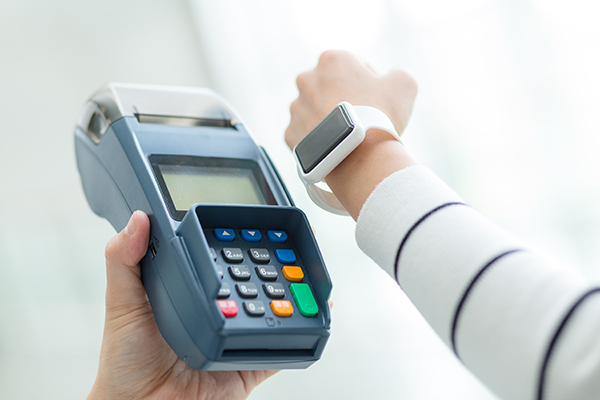According to a recent study by the research agency Lotus, conducted on behalf of De Nederlandsche Bank (DNB), cash is no longer accepted as a means of transaction in many retail outlets in the Netherlands. In fact, since 2016, debit cards have taken over cash as the main method of payment.
For this research, 4,300 shops were visited in the month of December 2022, to see how customers were paying and whether the available means of payment were communicated in a manner that was understood by customers before making the purchase. The results confirmed the recent ongoing trend. Four per cent of retail outlets indicated that they only accepted debit card payments. The figure was higher in some industries: 22 per cent of cinemas, 16 per cent of libraries, 16 per cent of parking facilities and 12 per cent of pharmacies only accepted debit card payments. The largest number of debit card-only retailers are located in major cities. For example, in places with more than 175,000 inhabitants, 6 per cent of shop owners only wanted debit card payments, compared to 2 per cent in places with fewer than 10,000 inhabitants.
What does this mean? DNB considered the acceptance of cash to be very low in many industries. ‘Cash is an important means of payment for smooth payment transactions and for ensuring that everyone can continue to participate. Vulnerable customer groups must also be able to continue to pay,’ said DNB expert Esther van den Kommer.
To ensure that cash remains usable, it is imperative that retailers continue to accept cash as legal tender. Although cash is a valid means of payment according to European legislation, it doesn’t oblige retailers to accept it as a means of transaction. In fact, retailers can opt to accept debit cards only. However, this is not a new problem. In 2021, DNB sent a letter to the then Minister of Finance, Wopke Hoekstra, pointing out that measures had to be taken to maintain the option of payment with cash as much as possible. This report emphasizes the seriousness of the existing problem.
In order to alleviate the problem of managing cash transactions with banks, DNB signed a Cash Covenant with other banks, retailers, catering companies and petrol stations. In 2022, in fact, trade associations in the retail sectors already agreed to ensure that cash was still accepted in shops, although this clearly has not happened in all stores.
Where can customers still pay in cash?
There is still some good news for cash-only customers, since in one place they can always pay in cash: market stalls. DNB research found no signs at markets stall that required customers to pay electronically, after surveying 930 stalls in the country. Consumers in small villages were less often forced to pay electronically, since shop owners are more open to cash in shops outside the city centres.
Why are more businesses shifting to cashless transactions?
For one, it is becoming increasingly expensive for retailers to process cash payments, as the bank fees to deposit cash are rising. Furthermore, the number of ATMs in the Netherlands is decreasing rapidly, so that most customers are now used to paying by card. Finally, handling cash seems like a risky business compared with a much more secure electronic payment system.
Communication on methods of payment lacking
Another problem that the research found was the lack of communication related to methods of payment in many retail outlets. In fact, one in three stores that only accepted debit card payments stated so only at the end of the checkout process. This causes problems for customers who have cash but don’t know that debit cards are the only acceptable method. Van de Kommer advises retail outlets to make this information clear at the entrance, so customers understand the accepted payment method beforehand. This could be done for example with a pin-only or cash-accepted-here sign, posted in a clear and visible manner.
Written by Stephen Swai
